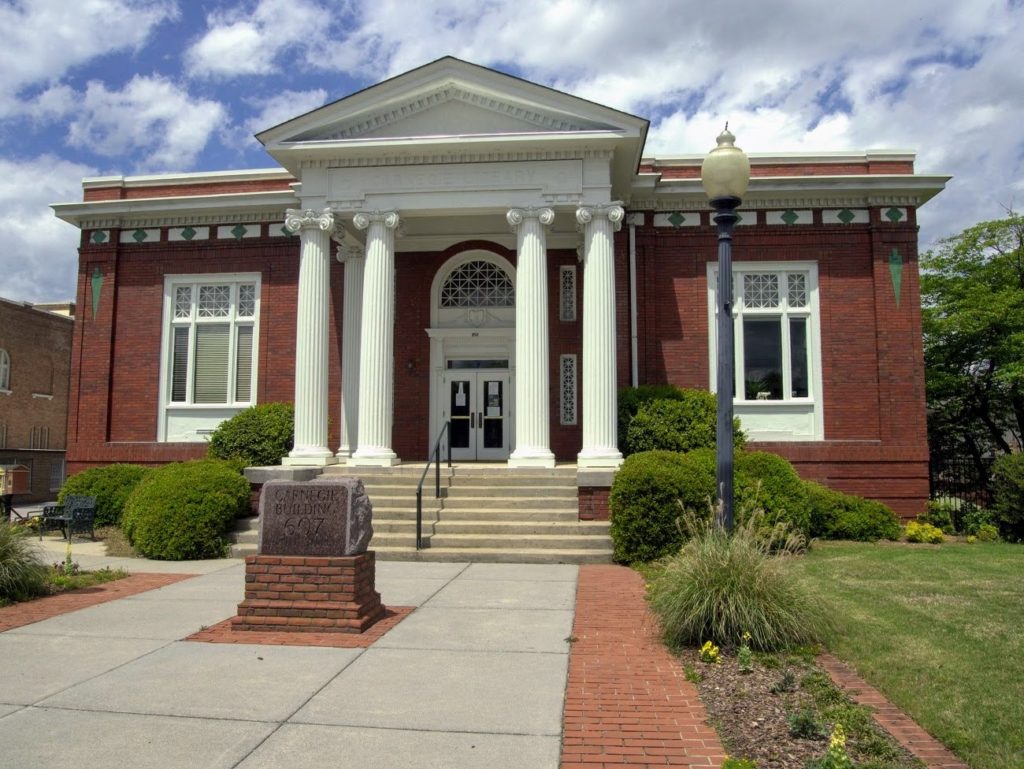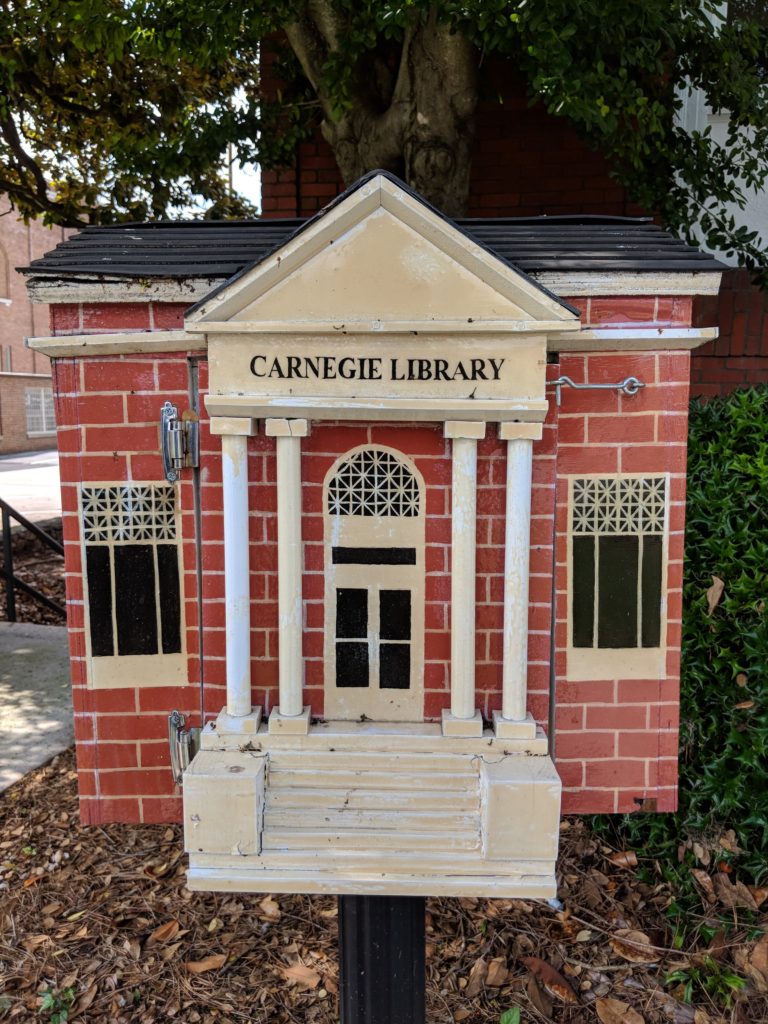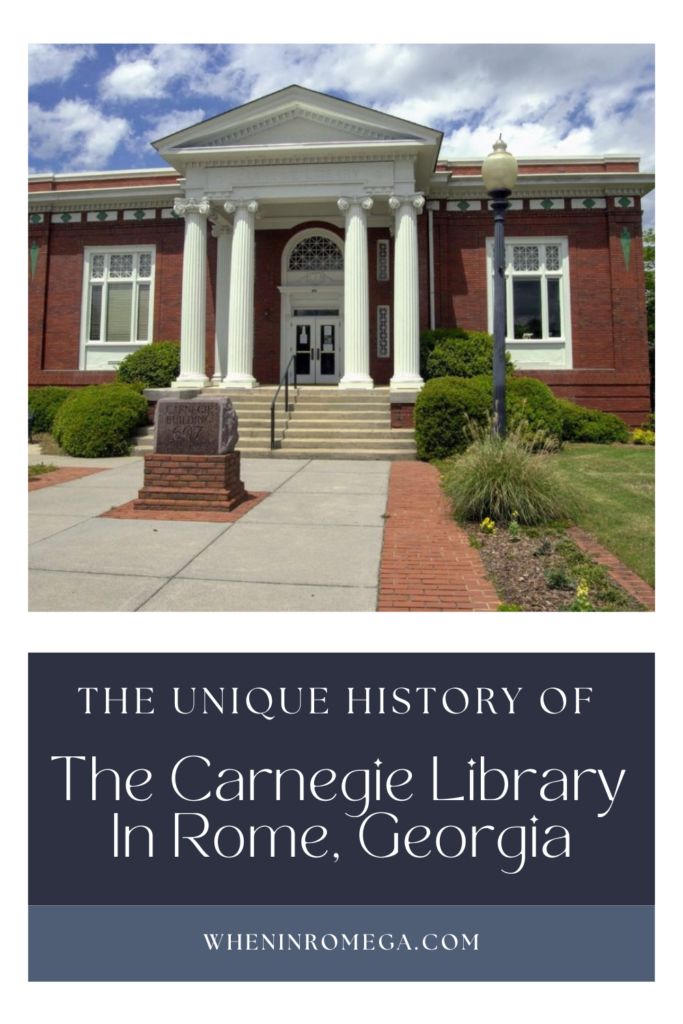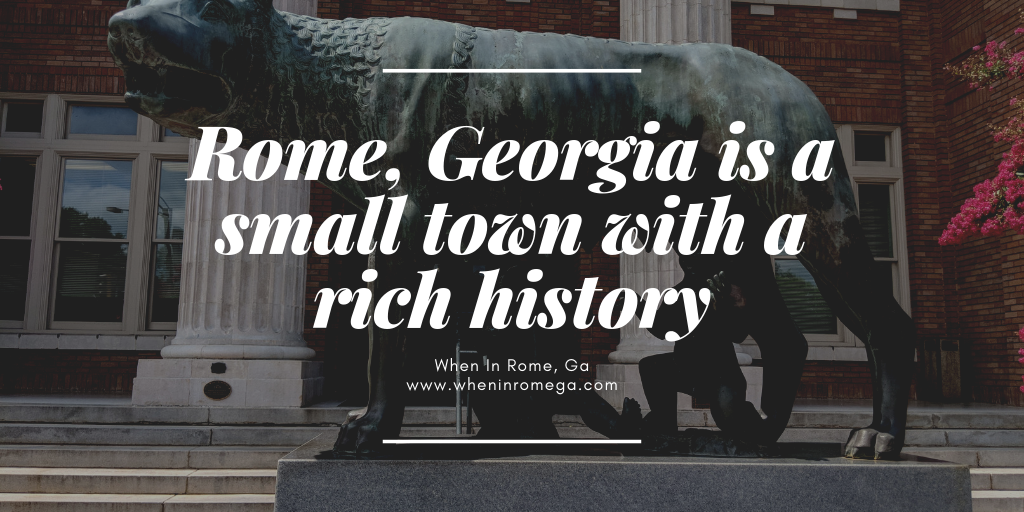Imagine walking into your local library and discovering that it was funded by one of the most famous philanthropists in history. That’s precisely the case with the Carnegie Library in Rome, Georgia. Andrew Carnegie, the man behind the funding, left a lasting legacy in the community. This article will explore the surprising connection between the Carnegie Library in Rome, Georgia, and Andrew Carnegie. We’ll delve into the history of his philanthropy, explore the library’s story, discuss Carnegie’s impact on Rome, Georgia, and examine his legacy in today’s society. Join us on this journey to discover how small acts of giving can lead to a lifetime of impact.
The History of Andrew Carnegie’s Philanthropy
To better understand the significance of the Carnegie Library in Rome, Georgia, it’s essential to explore the history of Andrew Carnegie’s philanthropy. Carnegie was a Scottish-born American industrialist who made a fortune in the steel industry during the late 19th century. He believed in the power of education to uplift communities and improve society. In the late 1800s and early 1900s, Carnegie began a philanthropic mission to build libraries, schools, and other educational institutions throughout the United States and abroad.
Carnegie’s philosophy was simple: “To bring books and the hope they contain within reach of every man, woman, and child in America.” He began by donating money to establish public libraries in his hometown of Pittsburgh, Pennsylvania. Eventually, he expanded his program to include cities and towns nationwide. Carnegie funded the construction of more than 1,600 public libraries in the United States and other countries, making him one of the most significant philanthropists in history.
Carnegie’s library program was incredibly successful because of its simplicity and focus on local communities. He believed every town and city should have a public library, and he made it his mission to ensure this became a reality. By providing the funds necessary for the construction of libraries, Carnegie was able to invest in the education and well-being of communities worldwide.
The Carnegie Library in Rome, Georgia, is just one example of the impact of Carnegie’s philanthropy. By providing the funds for its construction, Carnegie left a lasting legacy in the community and helped to ensure that generations of Romans would have access to the knowledge and resources they needed to realize their full potential.

The Story of the Carnegie Library in Rome, Georgia
The Carnegie Library in Rome, Georgia is a testament to the impact of Andrew Carnegie’s philanthropic efforts. In 1902, Carnegie provided $12,500 for the library’s construction, which opened its doors to the public in 1911. The building, designed by New York architect James Stewart, features a red brick façade with white trim, a traditional portico supported by ionic columns, and a striking dome that crowns the structure.
The library quickly became a hub of intellectual activity and civic engagement in Rome, Georgia. It provided access to books, periodicals, and other essential educational, research, and personal growth resources. It hosted lectures, exhibitions, and cultural events that enriched the community and fostered a sense of pride and belonging among its citizens.
It housed Rome’s Library until 1988 when it was moved to its new home, Sarah Hightower Library. Just outside the Carnegie Building is a miniature replica of the building that serves as a “Little Free Library” for you to swap books. Today the building is used for Government Offices.
Over the years, the library in Rome, Georgia has undergone several renovations and expansions to keep up with the changing needs of its patrons. Today, it is a thriving institution that serves as a vital resource for education, information, and community engagement. Its success is a testament to the enduring impact of Andrew Carnegie’s vision and generosity.
Carnegie’s impact on Rome, Georgia extends far beyond the library’s construction that bears his name. In the next section, we will explore how Carnegie’s legacy has shaped the history and culture of the city.

Carnegie’s Impact on Rome, Georgia
Carnegie’s impact on Rome, Georgia is not limited to the construction of its library. His philanthropy and vision continue to shape the city’s history and culture. From funding the construction of several other libraries across the state to his donations towards establishing the Berry College School of Business, Carnegie’s generosity has left an indelible mark on the community. His commitment to education and accessibility has paved the way for future generations to access resources and opportunities they may not have had otherwise. Today, Rome, Georgia is a testament to his legacy and serves as a reminder of the immense impact that one person’s generosity can have on a community. As we delve deeper into the legacy of Andrew Carnegie’s philanthropy in today’s society, we will explore how his vision for education and accessible resources has continued to shape communities worldwide.
The Legacy of Carnegie’s Philanthropy in Today’s Society
Carnegie’s impact on Rome, Georgia is not the only legacy of his philanthropy. Throughout his life, Carnegie donated large sums of money to various causes, focusing on education and accessibility. Today, his vision continues to shape communities across the world.
One example of this is the establishment of the Carnegie Corporation of New York, which continues to promote his ideals by funding initiatives related to education, democracy, and international peace. The corporation has donated billions of dollars to various causes, including the creation of libraries, the promotion of early childhood education, and support for public schools.
Another example is the Carnegie Endowment for International Peace. This non-profit organization promotes collaboration between nations and works towards preventing conflict. The endowment was established in 1910 with Carnegie’s money and has since played a significant role in shaping international relations.
In addition to these organizations, Carnegie’s philanthropy has inspired countless individuals to make a difference in their communities. His belief in the power of education and accessibility has helped to create a culture of giving that continues to thrive today.
As we look to the future, it is essential to remember the legacy of Andrew Carnegie’s philanthropy. His vision for education and accessible resources has had a profound impact on communities across the world, and his generosity serves as an inspiration to us all. As the saying goes, “to whom much is given, much is expected.” Carnegie’s legacy reminds us that we all have the power to make a difference in the world, no matter how big or small our contributions may be.
In summary, the Carnegie Library in Rome, Georgia, funded by Andrew Carnegie, is a testimony to his legacy of philanthropy. Although it may seem like a small town library, it has significantly impacted the community for over a century. Carnegie’s contributions serve as a reminder that even small acts of kindness and generosity can make a lasting difference. The power of philanthropy to transform local communities cannot be underestimated. We should all aspire to make a difference in our own way. As the great Maya Angelou once said, “I have found that among its other benefits, giving liberates the soul of the giver.” Let us all be inspired to give generously and selflessly and, in doing so, transform the world around us for the better.
Read our post on the Historical Tour Of Broad Street for more historical markers in Rome, Georgia. Broad Street is one of the most popular places people go “When In Rome, Georgia.” It has the best collection of food, shopping, and entertainment venues in and around Rome. You may not know how a Broad Street tour reveals our rich local history. If you start at one end of Broad Street and stroll to the other end, you will find some fantastic stories and the history of our town.

Sign up for our email list to receive The Ultimate Bucket List For When In Rome, Georgia; you will never miss out on news about When In Rome, Georgia.




